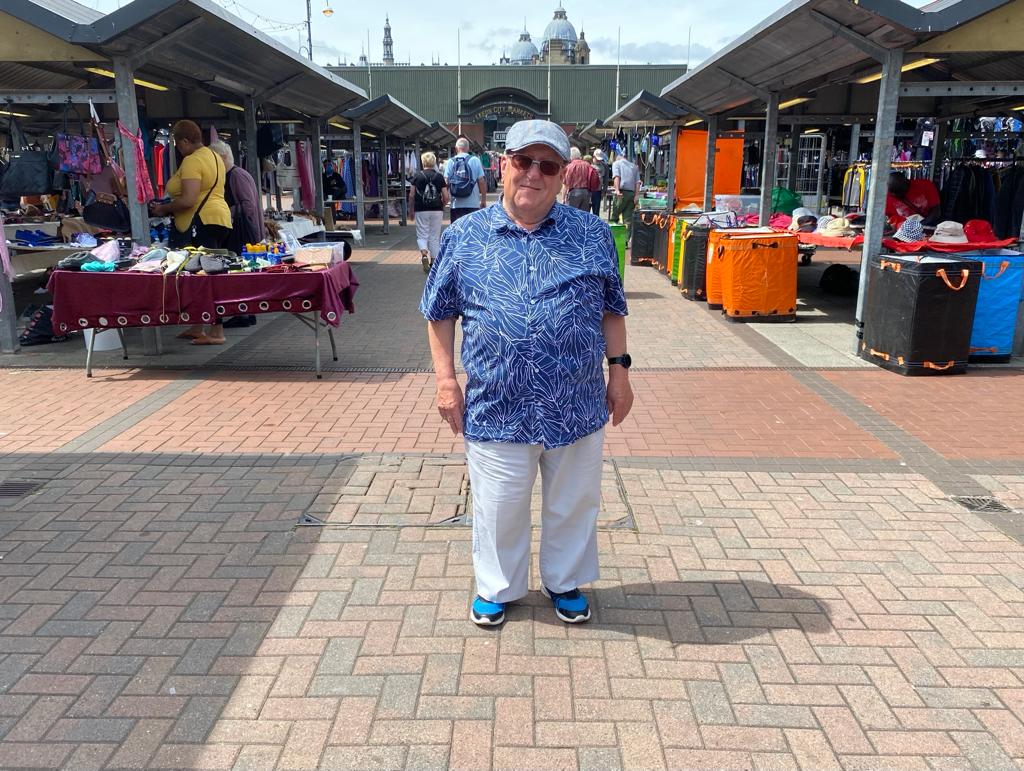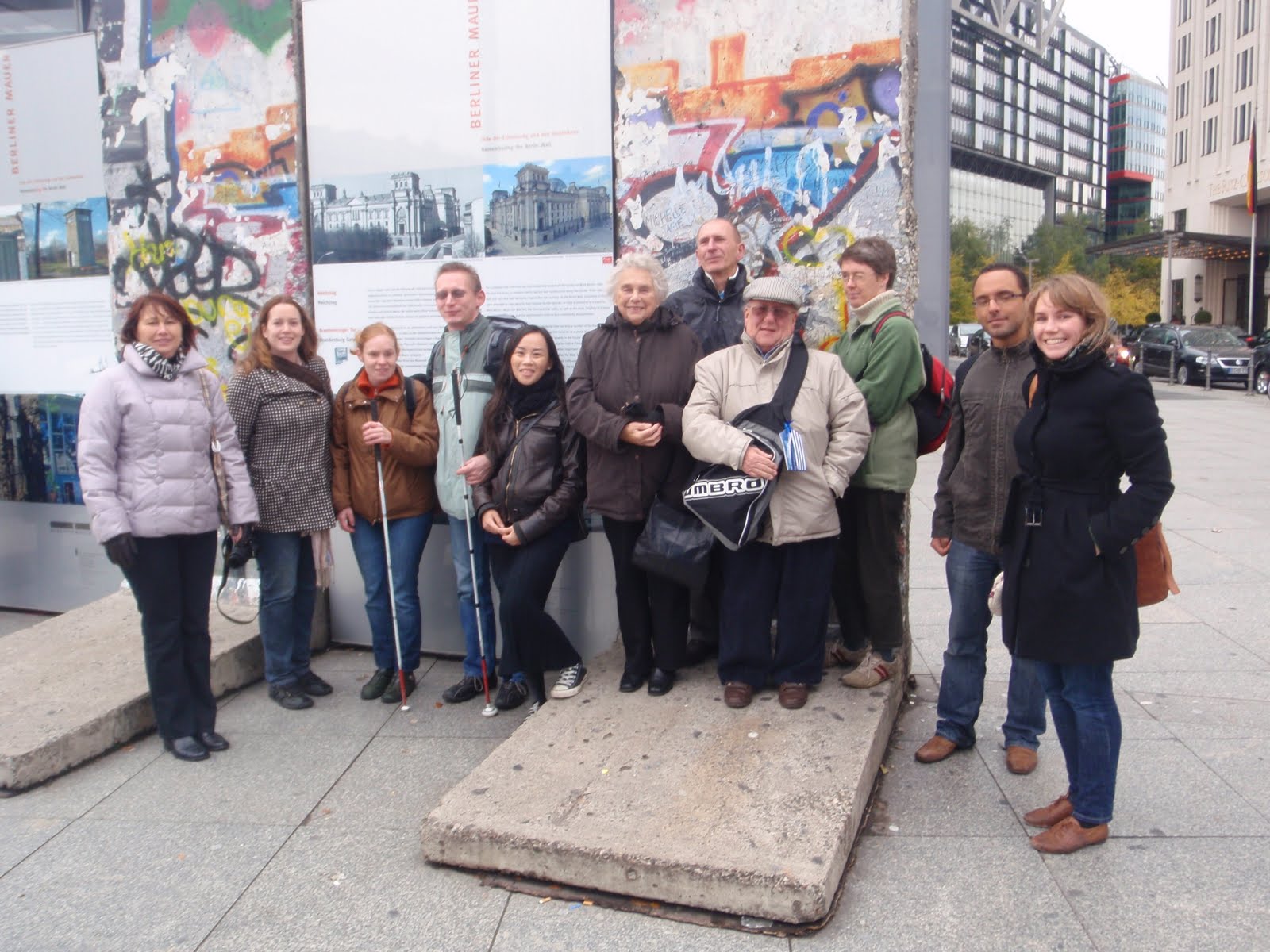
I just loved sharing the world I could see, and if I could help someone else to see it, if only through my eyes, it was all worth it.
Michael Hassell
In 2001 I had given up work to care for my mother. When she died in 2008 I decided not to return to work. I was 61 years old and near retirement age.
I decided to do some voluntary work. I had experience of working with visually impaired people. The RNIB (Royal National Institute for the Blind) arranged holidays for visually impaired people and were always looking for Sighted Guides. After some discussions and a Police Check I was accepted.
No formal qualifications were required, but you needed to be reasonably well educated, have a little knowledge of a wide range of topics, and most importantly you must be able to get along with people of all ages, from a variety of backgrounds and different cultures.
On a holiday the Tour Leader would allocate each sighted guide a visually impaired person, usually of the same sex. Sometimes you would share a room with your partner, unless the visually impaired person wanted to share with a friend, also impaired, then the two guides would share a room.
On arrival at the Hotel, the guide must show his partner where everything is in the room, so they can find their own way round. Then the bathroom, and how the shower works etc. We are not their carers.
At dinner you were required to read the menu to your partner. If it was a Buffet Meal you took them to choose what they wanted. Back at the table you told them where the various elements of the meal were using a clock face. Meat at 3 o'clock, potatoes at 6, vegetables at 9. Once they had started eating, you could then go back for your own meal. Then repeat for desserts and then tea and coffee. You were constantly on the go.
You also took the same person to breakfast every morning. You quickly got to learn what they liked. If it was a buffet, again you would help them select what they wanted.
After breakfast you were allocated a different partner for that day. On these group holidays we had a different person to guide each day. So if you did not get on with your partner for that day, you would have someone different to guide the next day. Not everyone was going to get on. However, if you shared a particular interest, or just enjoyed each other’s company you could request to be partnered with the same person. After evening dinner you then joined up with your Room partner.
Some of the holidays were in the UK, some were further afield. The furthest was Cape Town, in South Africa, but there was also Bulgaria, Croatia, Rome and Berlin.
In Berlin we had a local guide who took us on a walking tour of the city. All I had to do was to lead my partner. The guide had all the information. I can’t remember everything we saw, but we visited all the notable buildings, the Cathedrals, the Reichstag, The Brandenburg Gate, the Holocaust Memorial, Checkpoint Charlie, the Berlin Wall Memorial, the Gendarmenmarkt, the Trabant Museum and much more. We also had a trip on the river, and one evening we went to the A-Trane Jazz Club.
We also had a guided tour of Potsdam, the Sanssouci Palace with the Renaissance Orangery Palace, and Italian Style Gardens.
As a sighted guide you must be the eyes for your companion. It certainly made me look at the world differently. Your description is all they have. It helps if you can get close enough to touch or feel, or hear, or even smell something. Visits to gardens are always popular. Contact with animals that they can stroke or pet. Their guide dog is their best friend, which they have to leave at home, unless it’s a UK holiday.
When you are first introduced to the visually impaired person you need to establish what level of vision they have. Some have no sight at all, some can see blurred outlines and shapes, some have tunnel vision etc. Then you need to know if they have ever been able to see. Somebody who has been blind from birth may have no concept of colour, have no idea what objects look like. If they cannot touch or feel them they can’t imagine what it would look like. It is much easier for someone who has lost their sight later in life and can still remember what things looked like.
It is very rewarding and I met some lovely people and heard some very sad stories. Some had lost their sight in an accident, some had lost their sight over a number of years. Most people had made a new life and found a new career, even if it wasn’t their chosen profession. They still got married and had children. Most people were very grateful to the guides for giving up their time to make the holiday possible. It was still a holiday for us. Most people think the guides got their holiday for free. Not so, we all paid the same.
I just loved sharing the world I could see, and if I could help someone else to see it, if only through my eyes, it was all worth it.
I reluctantly stopped, because I was having mobility problems of my own. I could no longer walk long distances, and stairs were difficult, and it was not safe.
